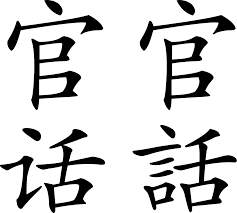来源于《图书和艺术》版块
Johnson
约翰逊语言专栏
Big and basic
大而基础
Why widely spoken languages have simpler grammar
为何广泛使用的语言语法更简单
Stalin spoke Russian as a second language. The Georgian dictator of the Soviet Union had a noticeable accent and is said to have mumbled his case-endings. The tale indicates two things. One is that learning new languages is hard, even with a great deal of exposure. (Stalin started learning Russian at around ten and spoke it all his adult life.) The other is that languages are more complex than they need to be. Not having mastered all Russian’s finer points didn’t keep Stalin from ruling the Soviet Union with a murderously effective iron hand.
俄语是斯大林的第二语言。这位前苏联的格鲁吉亚独裁者口音很重,据说他的格尾口齿不清。这个故事说明了两件问题。一个是学习新语言是困难的,即使有大量的接触。(斯大林十岁左右开始学习俄语,成年后一直说俄语。) 另一个原因是语言实际比所需复杂得多。虽然斯大林没有掌握所有俄语的细微之处,但这并没有阻止他以铁腕统治苏联。

Russian really is hard for learners, and a casual comparison might serve the conclusion that big, prestigious languages like Russian are complex. Just look, after all, at their rich, technical vocabularies, and the complex industrial societies that they serve.
俄语对学习者来说真的很难,随便比较一下就会得出这样的结论:像俄语这样有名的大语种是复杂的。毕竟,只要看看他们丰富的技术词汇,以及他们所服务的复杂工业社会就知道了。
But linguists who have compared languages systematically are struck by the opposite conclusion. They tend to find that “big” languages—spoken by large numbers over a big land area—are actually simpler than small, isolated ones. This is largely because linguists, unlike laypeople, focus on grammar, not vocabulary. Consider Berik, spoken in a few villages in eastern Papua. It may not have a word for “supernova”, but it drips with complex rules: a mandatory verb ending tells what time of day the action occurred, and another indicates the size of the direct object. Of course these things can be said in English, but Berik requires them. Remote societies may be materially simple; “primitive”, their languages are not.
但是,对不同语言进行系统比较的语言学家却得出了相反的结论。他们倾向于发现,“大”语言——在一大片土地上被大量使用的语言——实际上比小的、孤立的语言更简单。这在很大程度上是因为语言学家与外行人不同,他们关注的是语法,而不是词汇。想想巴布亚东部的几个村庄说的柏雷克语吧。它可能没有“超新星”这个词,但它有着复杂的规则:强制动词的结尾表示动作发生的时间,另一个表示直接对象的大小。当然,这些事情本可以用英语说,但柏雷克语要求不能如此。偏远的社会可能物质上很简单;“原始的”,但他们的语言不是。
Systematically so: a study in 2010 of thousands of tongues found that smaller languages have more Berik-style grammatical bits and pieces attached to words. By contrast, bigger ones tend to be like English or Mandarin, in which words change their form little if at all. No one knows why, but a likely culprit is the very scale and ubiquity of such widely travelled languages.
语言系统是这样的:2010年对数千种语言进行的一项研究发现,较小的语言在单词上有更多柏雷克风格的语法碎片。相比之下,更大的语言如英语或普通话,单词的形式几乎没有变化。没有人知道原因,但一个可能的罪魁祸首是如此广泛传播的语言的规模和普遍性。
译文由可可原创,仅供学习交流使用,未经许可请勿转载。













